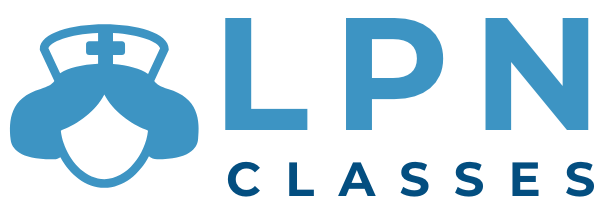

My name is Katie, and I have been a nurse for 10 years. My healthcare journey began in 2013 when I started as a CNA, eventually progressing through school to achieve my BSN. I specialize in Emergency Medicine and have worked as a Travel ER RN since the COVID-19 pandemic. Nursing has been life-changing for me. I strive to be the good in difficult situations and provide the best care possible to my patients.
So you’ve made it through LPN training. The classes, the clinicals, the stress, the caffeine—it’s all behind you. Almost. The only thing standing between you and that license? The NCLEX-PN.
It’s the last step, and yes—it’s a big one. But with the right prep and mindset, you can walk into that exam room feeling ready. Here’s how to approach it without getting overwhelmed.

You don’t need to study eight hours a day for six months. In fact, you probably shouldn’t. The NCLEX-PN isn’t just about what you remember—it’s about how you think.
The best time to start reviewing is right after your training ends (or even a few weeks before if you’re ahead of the curve). Give yourself 4–6 weeks of focused review, with time to rest built in.
Cramming might’ve worked for pop quizzes. Not here.
This isn’t your average multiple-choice test. The NCLEX uses a system called Computer Adaptive Testing (CAT). That means the test adjusts its difficulty based on how you’re answering.
As you go:
If you get questions right, the test gets harder
If you miss a few, it might throw easier ones your way
The test ends when it’s confident about whether you pass or not
You might get 85 questions. You might get 150. The number doesn’t matter—how you think does. Focus on answering each question like it’s the only one that counts.
Textbooks are fine for review, but practice questions are where you’ll really start to think like a nurse.
Try to hit at least 50–75 questions a day during your review window. Mix them up:
Prioritization
Infection control
Pharmacology
Scenario-based decision-making
Use tools like:
Saunders
UWorld
NurseAchieve
Kaplan (if your program includes access)
And don’t just memorize answers. Review why the right one is correct—and why the others aren’t. That’s how you build true clinical judgment.
If you’re great at patient care but blank out when meds show up? Spend extra time on pharmacology. If infection control confuses you, drill it.
Use practice test analytics (most tools provide this) to see where you’re slipping. Then focus your study time there instead of reviewing what you already know.
Don’t be afraid to lean on memory tools—your brain loves shortcuts.
Here are a few classics:
A before O for assessing patients: Airway, then Oxygen
SPICES for geriatric care: Sleep, Problems eating, Incontinence, Confusion, Evidence of falls, Skin breakdown
RICE for wound treatment: Rest, Ice, Compression, Elevation
Use what works—and if it’s silly but you remember it, it’s not silly.
At least once a week, sit down for a full simulation test. No interruptions. No shortcuts.
This does two things:
It builds endurance so you don’t burn out halfway through the real thing
It helps with test-day nerves—the more familiar it feels, the less scary it is
Review your results, and tweak your study plan for the next round.
Test day isn’t just about what you know—it’s about how you handle stress.
Get good sleep the night before. Eat something light but solid. Show up early. And if you hit a question you don’t know? Breathe. You’re allowed to get some wrong. Everyone does.
Confidence isn’t knowing you’ll get every answer right. It’s knowing you’ve done the work—and can think your way through whatever the test throws at you.
The NCLEX-PN isn’t meant to trick you. It’s designed to make sure you’re ready to keep people safe. And after everything you’ve been through in training? You are ready—you just need to remind yourself of that.
Prep smart. Practice daily. Trust your instincts. And when you pass? You’ll know it wasn’t just because you studied. It was because you showed up like a nurse.
If you haven’t enrolled yet, the NCLEX might feel far off—but it’ll come sooner than you think.
Use our form to find LPN programs near you, and take your first step toward the finish line.
Ready to kickstart your healthcare journey?
Fill out the form above, and let CNA Class Guide match you with the best CNA training programs in your area!

Copyright © 2025 LPN Class Guide
All Rights Reserved